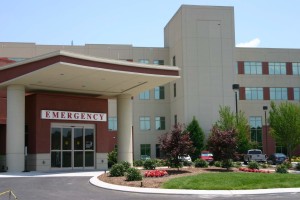About one-fourth of Georgia hospitals received an “A” grade on patient safety in newly published ratings.
That percentage, determined by the Leapfrog Group, is down from this past autumn, when one-third of Georgia hospitals got an “A” in the organization’s ratings.
The ratings from Leapfrog, a patient safety organization founded by employers, are issued semi-annually, in fall and spring.
In the new survey, Georgia came in 35th among states in the overall percentage of top-performing hospitals. The state’s hospitals were ranked 10th in the fall Leapfrog analysis.
The Leapfrog ratings come just days after the Obama administration, bowing to pressure from the hospital industry, decided to delay the government’s own new star ratings of hospital quality. The new star rating from the federal Centers for Medicare and Medicaid Services (CMS) uses 62 measures to devise a unified rating of one to five stars, with five being the best.

This month, 60 senators and 225 members of the House of Representatives signed letters urging CMS to delay releasing the star ratings, Kaiser Health News reported last week.
“We have heard from hospitals in our districts that they do not have the necessary data to replicate or evaluate CMS’s work to ensure that the methodology is accurate or fair,” the letter from the House members said.
The unreleased CMS ratings and the Leapfrog Group’s rankings are part of a growing push to analyze and report on quality of medical care.
Leapfrog gives “A” through “F” grades to more than 2,500 hospitals based on how they prevent medical errors, injuries, accidents and infections.
Vermont had the highest percentage of hospitals that achieved an “A.” No hospitals in the District of Columbia, Arkansas or Wyoming received an A.

Not all hospitals are graded by Leapfrog. Critical access hospitals and pediatric facilities are excluded because of insufficient data.
Leapfrog said that nationally, 153 hospitals have earned straight “A’s” since 2013. Two are in Georgia: Gordon Hospital in Calhoun; and West Georgia Medical Center in LaGrange, which recently joined WellStar Health System.
Scoring an “A” grade this time were 17 hospitals across Georgia, including some in metro Atlanta, Macon, Augusta and Athens, as well as smaller cities. Several Georgia hospitals scored a “D,” but none in the state received an “F.” (Here’s a link to the Georgia hospital rankings.)

The Leapfrog analysis found that despite considerable improvement in the safety of hospital care since the ratings launch in 2012, avoidable deaths remain high. In total, the analysis showed an estimated 206,021 avoidable deaths occur in U.S. hospitals each year, a figure Leapfrog said was likely an underestimate.
Leapfrog said that compared to “A” hospitals (the safest), there is a 9 percent higher risk of avoidable death in “B” hospitals, a 35 percent higher risk in “C” hospitals and a 50 percent higher risk in “D” and “F” hospitals.
“It is time for every hospital in America to put patient safety at the top of their priority list, because tens of thousands of lives are at stake,” Leah Binder, president and CEO of the Leapfrog Group, said in a statement Monday.
Besides its own hospital survey, Leapfrog compiles the safety scores using information from organizations including the Agency for Healthcare Research and Quality, the CDC and CMS. The ratings include 30 measures that are publicly reported by hospitals.

The Georgia Hospital Association’s president, Earl Rogers, said in a statement Monday that his organization supports efforts of the state’s hospitals to improve patient safety and quality of care.
“While we agree that patients and families should be equipped with as much information as possible when choosing a health care provider, it should be noted that because organizations like Leapfrog utilize different quality measures, performance data and methodologies to calculate scores, a hospital can perform well in one ranking and poorly in another,’’ Rogers said.
“The Leapfrog data is just one of many tools patients can use when making health care decisions such as choosing a hospital. When selecting a health care provider, we encourage patients and families to use all available tools at their disposal, such as talking with friends and family and consulting with doctors, nurses and other practitioners,’’ Rogers added.
Beth Stephens of Georgia Watch, a consumer advocacy group, said her organization seeks to raise awareness among consumers that safety information is available.
”Hospital safety and quality data can help people make the best decisions possible about their care,” said Stephens. “We appreciate the commitment hospitals in metro Atlanta are making to improve care.”

